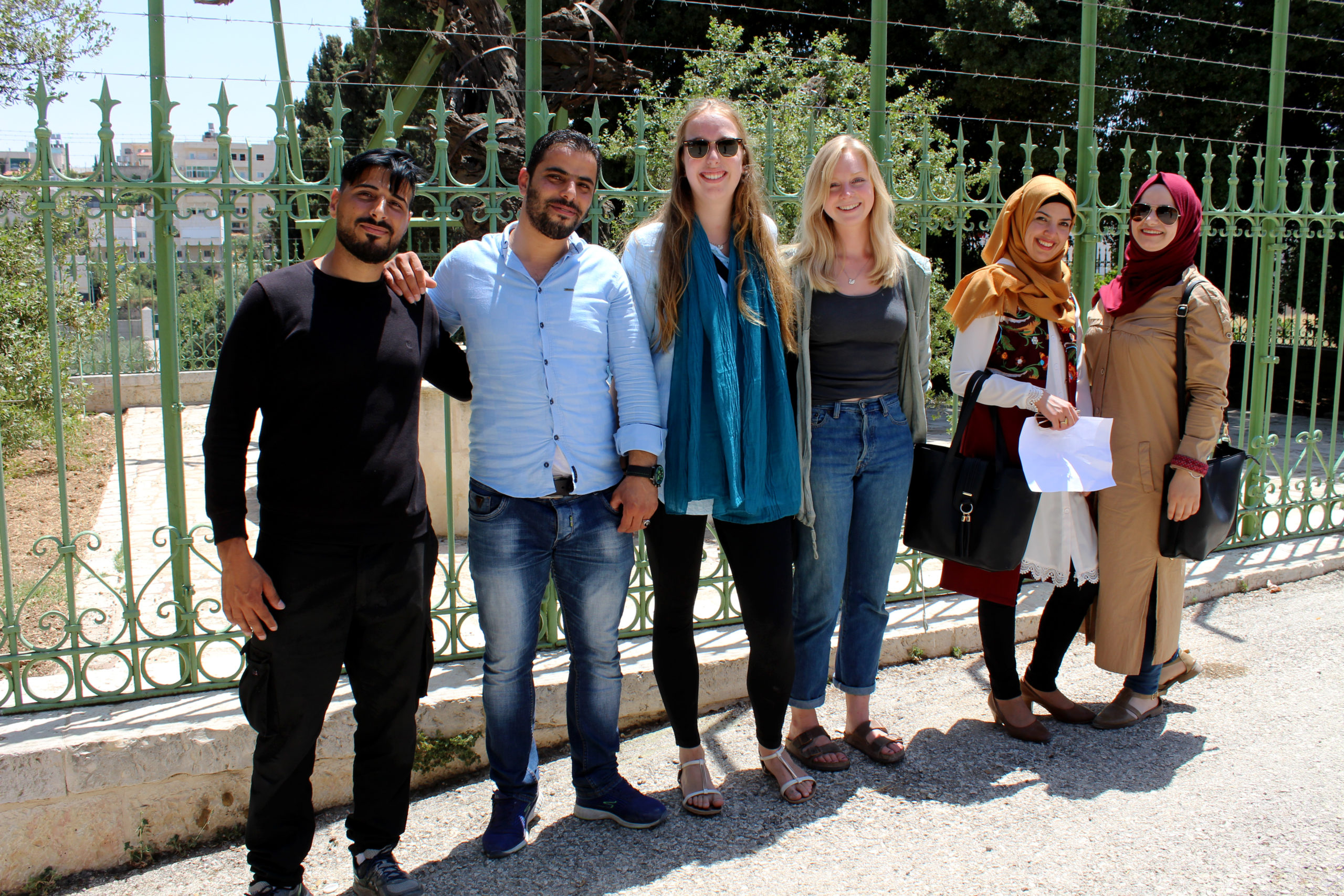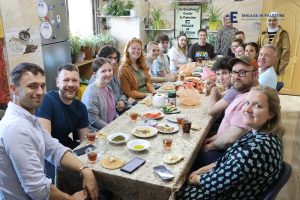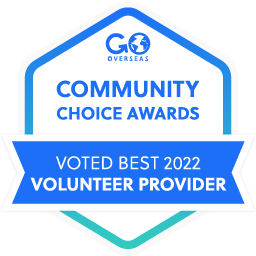Living In Hebron, West Bank, Palestine: The first thought of many potential visitors to Hebron, West Bank is often about safety. Many international volunteers, students, and interns who are interested in coming to Hebron, West Bank, to serve with Engage in Palestine express specific concerns about the safety of living in Palestine. This is understandable as we know that unless you already have firsthand knowledge of the West Bank, most of your information is likely to have come from the often unfavorable media coverage of the region.
Table of Contents
Palestinians Embrace Life
The reality is that although Palestine is under Israeli Occupation and there are tensions and difficulties present because of this, the local people living in Hebron live their lives as best they can. You will find that people here have many of the same aspirations, goals, concerns, trials and tribulations as people you would meet anywhere else.
During your time in Hebron, Palestine you will see people doing all of the things you would expect to see in your home country- groups of friends enjoying food and drink together, students working diligently at school/college/university, families gathering for wedding celebrations, people going to work, exercising at the gym- all regular activities.
The Media Portrays Palestine As A War-Zone – This Is Not Reality
When discussing safety and security, it is also vital to ask ourselves what we are really worried about and why this is the case.
Ask yourself: What is the source of this apprehension? Is the source of our apprehension trustworthy? It was most likely formed as a result of other people’s perceptions of a scenario about which they know nothing.
International media outlets frequently portray violence in the West Bank and some people upon hearing the name “Palestine” think only of TV images of war and turmoil. Internationals may come to Palestine with the apprehension that they will be living in an active war-zone and unfortunately other potential volunteers – based on this media portrayal – may decide not to come altogether.
It is a fact that there are disturbances from time to time and the situation can be tense. However, internationals who come to Palestine find that they are largely able to live their daily lives without particular safety concerns above and beyond those typical of living in big cities.
Don’t Just Believe What You Hear – Do Your Own Research And Come And See For Yourself!
If your perceptions are based on the media, remember that the media exaggerates and drama and tragedy sell, which is why much of what we see in the news and online media sources is a skewed version of reality.
If your attitude on security is based on other people’s experiences, individuals who have been in the region you are going to visit, you may be more trusting, but keep in mind that these are personal experiences that are unlikely to repeat themselves.
You may see a recent film regarding is it safe to visit Palestine with some of our current volunteer perspectives. Based on comprehensive interviews with volunteers in Palestine and the staff at Engage in Palestine, here are some things to keep an eye out for when in Hebron. You may or may not find this unexpected, but these are the safety concerns that internationals confront when in Palestine.
Practical Information
Clashes On Friday
You’ve probably heard about the protests in the old city of Hebron. People will protest near the H2 checkpoints every Friday after prayer at the downtown mosques. Often, these protests devolve into conflicts between adolescents hurling stones and Israeli forces retaliating excessively with tear gas or rubber bullets.
These are regular occurrences to avoid; even if you are intrigued, please keep away from these events; they may rapidly become violent, and you do not want to be an innocent hurt bystander. As a general rule, we advise keeping away from huge crowds.
Stones
In and around Hebron two (H2), it is also typical for children and youth to hurl stones towards foreigners; however, this does not occur often since the stones are usually aimed at troops or settlers. However, in extremely rare circumstances, the children may misinterpret an international and behave angrily. Maintain a polite demeanor and identify yourself using the little Arabic you know.
Weddings
Weddings are also prevalent on Fridays, and they generally entail a big boisterous display of ecstasy, complete with honking and screeching tyres and, in some cases, fireworks. Don’t be alarmed; this is a common joyous event and is unlikely to pose a safety risk in Palestine, although the loudness may surprise some individuals.
If you are staying with a host family who have a relative getting married, you will almost certainly be invited to the ceremony and will be able to be part of the celebration. This is a lovely way to experience a Palestinian celebration and hospitality!
Construction Sites
We advocate walking away from and around construction sites since they are equally unsafe, with no protection for employees or warning notice for anyone passing by, so just cross the street or go around it. We’ve seen debris fall from buildings pretty near to people and drivers, so it’s best to be cautious rather than sorry in this regard.
Women’s Safety While Visiting And Staying In Palestine
The majority of female volunteers have said that they have never felt unsafe in Hebron. According to some volunteers, this location may be the safest for women in the globe when compared to everywhere else on the planet. Men, on the whole, are highly courteous and pleasant; everyone wants to assist and welcome you. Remember that it is a fairly conservative city, so dress appropriately.
Payment For Goods And Services
Most shops do not take credit cards, so it is best to use cash, which you can withdraw from an ATM in Hebron. ATMs are easily accessible and may be found within walking distance of Engage in Palestine’s center. Note that a number of ATMs in Hebron will not work with many foreign cards, so we recommend using the Bank of Palestine ATM which is located in Bravo supermarket, a short walk from our center.
Be advised that the Bank of Jordan, the Arab Bank and the Cairo Amman Bank will only offer you money in Jordanian Dinars, which must subsequently be converted. If you are wondering why you can withdraw Jordanian Dinars in the West Bank, it’s because Palestinians use them to pay for certain expensive purchases, such as land and animals.
Traveling Around
Taxis are the most prevalent mode of transportation in Hebron and the cost of a taxi trip varies depending on the kind of taxi ride you take. A private taxi trip (you alone in the car with the driver) inside the city of Hebron usually costs 12 NIS (New Israeli Shekel). A “public taxi” journey implies you will be sharing the cab with other passenger, which costs 3 NIS per person within the city of Hebron. To share a taxi with other passengers, you will need to be going in the same direction. Note that if you are leaving the city of Hebron and going out into a village of Hebron or another city entirely, the fare will be more.
Service between West Bank cities, for example, “shared taxis” that are cars resembling minivans, one-way often cost as follows:
- 10 NIS from Bethlehem to Hebron
- 28 NIS from Ramallah to Hebron
- 15-20 NIS from Ramallah to Nablus
- 14 NIS from Ramallah to Jerusalem
TIP
Before getting inside the car, you will once again ask the driver what the exact fee will be. Note that shared taxi drivers are much more honest about the fare and they should not try to overcharge you like private taxi drivers might do. While you are in motion, hand your NIS to the driver, just like the other passengers. You can also ask another passenger what the fare is. Any change owed to you will be returned to you by the driver via the other passengers.
Health Insurance
It is your responsibility to pay for any medical expenditure incurred whilst in Palestine so we strongly recommend that you take out adequate health insurance before you travel.
Currency
The West Bank’s currency is the “New Israeli Shekel.” For the most up-to-date exchange rates, visit: http://www.xe.com/currencyconverter/.
In general, the NIS is worth 3.5 to 4 US dollars. Banks are open between the hours of 8am and 3pm. ATMs are available 24 hours a day, seven days a week. The Arab Bank, the Bank of Palestine, the Cairo Amman Bank, and the Bank of Jordan are the main banks. As previously stated, some of these banks provide cash in Jordanian dinars, which must subsequently be converted into NIS currency. The Bank of Palestine has options to withdraw NIS (shekels) or US Dollars.
It is easy to exchange US Dollars, Euros and Jordanian Dinars at a currency exchange office, within a short walk from our center in Hebron.
Leisure Time
Engage in Palestine makes every effort to provide interns, volunteers and students with opportunities to travel and discover Palestine. Participants are provided with four (4) free days each month plus every Friday off to accomplish exactly that. Engage in Palestine also organises visits to Palestinian historical and cultural sites.
Engage in Palestine makes every effort to advise and support interns and volunteers who arrange their own outings. Interns and volunteers will have several chances to practise Arabic with our staff, students, and community members via work and leisure activities.
Internet
Internet access is accessible in residences and around the city and Hebron is full of cafes that have wifi. Note that internet connections in the West Bank might be a bit slower than you are used to and for mobile data, only 3G is available.
Alcohol In Hebron
Hebron is a religiously devout city and perhaps the most conservative city in Palestine. Therefore the buying, selling and consumption of alcohol is not permitted.
Shopping
Hebron is a city full of big and small shops, stores, malls, and supermarkets. Within a ten-minute walk of our center, there is a huge supermarket with multiple ATMs. Whatever you need is simply available.
Local Culture
International participants are advised to respect local culture by not wearing shorts (for either sex). Women are encouraged to dress modestly, which includes avoiding wearing shorts, short skirts, or low-cut or short-sleeved blouses. Winter may be rather chilly (particularly inside buildings and houses), so bring plenty of warm clothing and layers. Summer attire should consist of light long-sleeved shirts and blouses, as well as long trousers.
Entering Israel
When entering Israel, some foreigners are subjected to lengthy interrogation and extensive inspections by Israeli officials. Many interns, students and volunteers, however, are not stopped or checked. So don’t be concerned! Remain calm and polite, answer the questions simply and truthfully then you will soon be on your way. You will be issued an entry visa valid for three (3) months (90 days).
Visiting H2 With Engage In Palestine
The Reality of Living Under Israeli Military Control in Hebron
Engage in Palestine organized a trip to Shuhada Street to meet the Salaymeh family, who continue to live in the neighborhood despite harassment from Israeli settlers just over the street. The Salaymeh family consists of the mother, two daughters, and the son, Abed. “I met Abed while he was delivering a discussion about living in Hebron at my university,” recalls Marjo, an international volunteer with the Human Rights programme, “and it was extremely intriguing to witness the truth on Shuhada Street finally with my own eyes.”
H1 Area Compared To H2
The reality in the Palestinian-controlled part of H1, where Engage in Palestine’s center is located, is quite different from the situation on Shuhada Street in H2, which is under Israeli military control. Shuhada Street was previously one of the busiest streets in Hebron, but it is now called a ghost street since all of the stores have closed and Palestinians are barred from entering. The yearly “Open the Shuhada Roadway” campaign is organised by the group Youth Against Settlements, but the street remains blocked.
The settlers pelt the Salaymeh home with stones and filthy water and have also caused difficulties with power and water supplies for the household. The Salaymeh family, on the other hand, do not want to leave their home. The family’s mother has been detained many times because she wants to live in her own home. She has been offered a large sum of money to leave, but she refuses, posing a dilemma for the Israelis.
Checkpoints Restrict Palestinians’ Movements
The Palestinian ID system is extensive and constantly developing. Checkpoints are ostensibly for security, however this is not the case. Because they are above everyone else, the Israeli settlers are the only dangerous individuals there. They also don’t want internationals to come to the region to observe the truth of Palestine. Abed Salaymeh, for example, is only permitted to pass the checkpoint closest to his home since he was born in Palestine. He was born and raised in Palestine, yet overseas visitors to the country enjoy much greater privileges.
Passing Through Checkpoints Is Easy For Internationals But Not For Palestinians
In contrast to Palestinians, internationals find it quite simple to pass through checkpoints. International visitors just need to present their passport to enter the country. One of our foreign volunteers at Engage in Palestine paid a visit to the Salaymeh family one day after Eid Al-Fitr (the feast after Ramadan), which is the only reason why a Palestinian from Engage in Palestine was also permitted to enter H2. He hadn’t been in the region in three years, and if he’d attempted to enter on another day without the presence of internationals, he wouldn’t have been permitted.
The Situation Has Only Become Worse For Palestinians
When questioned about the present situation on Shuhada Street, the family says it has only become worse as more and more people have fled their homes. For example, when the ambulance was refused access, a pregnant lady was forced to give birth at the border. Because of the checkpoints, it is very difficult for the ill to travel to the hospital or for children to go to school.
While discussing the difficult realities of life under Israeli military authority in Hebron, the family gave Arabic coffee and chocolate, and our foreign volunteer expressed her gratitude for all they did for her.
Life At Our Center
Volunteers may apply to our teach English and study Arabic programme, one of our many other volunteer or internships programs or an intensive Arabic course in Hebron, West Bank. Experienced coworkers provide a pleasant working environment and are always willing to lend a helping hand when required, while the presence of other foreign volunteers, interns and students ensures a multicultural and international workplace.
Where Is Our Center?
Engage in Palestine’s center is in Hebron, the West Bank’s biggest city. While Hebron encompasses a huge region with several communities, the Engage in Palestine center is located on a busy major thoroughfare. During the day, volunteers can find everything they need, and some stores will be open until late at night.
Conclusions
To summarise, it is very safe to come and stay in Palestine, and you may enjoy and experience Palestinian daily life.
The safety of our guests and volunteers is one of our top priorities. We want to ensure everyone who stays with us at Engage in Palestine has a positive experience. We also want to note that our center, our teachers and staff have deep ties to the community in Hebron. Therefore, our volunteers may be recognized by locals of the city and are welcomed throughout. As Cara expressed in a letter to us, “I feel safe and loved, and would encourage anyone thinking of volunteering to come and experience this for themselves.” These sentiments are echoed by numerous other foreign volunteers, interns, students and visitors we have had the privilege to host and teach over the last several years.
We recognize that those considering coming to volunteer at Engage in Palestine in Hebron, Palestine will have initial concerns about safety. For this reason, we want to assure everyone who is expressing interest to come and work with us that safety risks are minimal. Transportation is reliable and safe. Streets are no more dangerous than those in larger cities in the West. However, as in every other part of the globe, certain precautions must be taken.
Find Us Online
WhatsApp: +972 599 479 880
Excellence Center’s Facebook page: https://www.facebook.com/ExcellenceCenter
Excellence Center’s Facebook account: https://www.facebook.com/RafatECHebron
Watch us on Youtube: https://www.youtube.com/channel/UCsQSLdFZWZcBm6Uj0XMYuKg
Visit and Explore Palestine: https://www.facebook.com/ExplorePalestine



